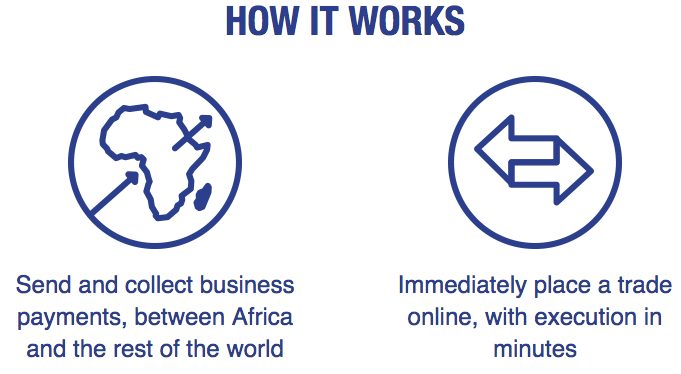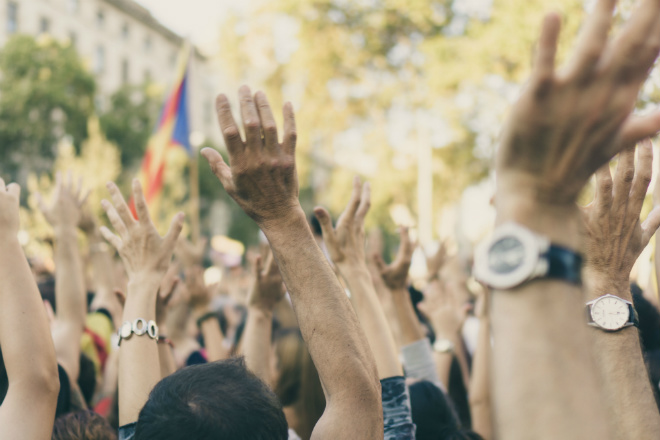When most people think about blockchain, they probably think about cryptocurrencies like Bitcoin and Ethereum. They might think about how much money some people have made from investments. But blockchain is so much more than just a way for tech-savvy people to get rich.
Blockchain is basically a technology that allows any platform built on it to be secure, incorruptible, and completely transparent. There’s no need for any intermediaries getting in the way, slowing processes down and possibly corrupting things.
While the technology is still in its infancy, blockchain is looking to be a very promising solution to some of our world’s most serious problems such as corruption, financial inequality and access to information. Though there’s a long way to go before all the kinks are worked out, blockchain technology has already made some improvements towards a more free and just world, even now in its early stages.
Let’s take a look at some of the incredible ways this technology is improving global human rights and making our world a better place to live.
1. Aid Refugees in Need
The global refugee crisis is one of, if not the biggest humanitarian emergency of our era. This complex issue requires a plethora of solutions to better the lives of those displaced. One such solution was created utilizing blockchain and cryptocurrency to improve refugees’ lives. But how?
On May 31, 2017, the United Nation’s World Food Programme (WFP) provided over 10,000 Syrian refugees with cryptocurrency-based vouchers that could be redeemed in participating markets.
“All funds received by the refugees from WFP were specifically used to purchase food items such as olive oil, pasta and lentils,” Alexandra Alden, a consultant for WFP, told Coinbase.
Since refugees are displaced, most of them don’t have access to a bank account of any kind to receive funds. But thanks to blockchain technology, thousands and thousands of people in need were able to obtain some currency to help feed themselves and their families.
This amazing project was done on the Ethereum blockchain with the help of Parity Technologies, a startup led by Ethereum co-founder Gavin Wood, along with blockchain big data firm Datarella.
WFP’s Director of Innovation and Change Management, Robert Opp, explained why blockchain is such a big deal for improving global human rights:
Blockchain technology allows us to step up the fight against hunger. Through blockchain, we aim to cut payment costs, better protect beneficiary data, control financial risks, and respond more rapidly in the wake of emergencies. Using blockchain can be a qualitative leap – not only for WFP, but for the entire humanitarian community.
2. Bridge the Poverty Gap
Sending money overseas can be very costly, and often the poorest get hit the hardest. Africa is currently the most costly continent to send money to.
Large intermediaries, such as banks and Western Union, take big cuts when sums of money are transferred, and it often takes a long time for the funds to clear. But because blockchain is decentralized, these problems are greatly reduced. This means businesses and families gain more economic freedom.
One such company utilizing blockchain technology to make money transfers more affordable is BitPesa. BitPesa is an online payment platform that leverages blockchain settlement to significantly lower the cost and increase the speed of business payments to, from, and within sub-Saharan Africa.

BitPesa is just one example of how blockchain technology can reduce global poverty. There are plenty of blockchain-based solutions that are working on making global payments easier and cheaper. Just look at the 8th most popular cryptocurrency in the world, Stellar, whose website states:
Stellar connects people to low-cost financial services to fight poverty and develop individual potential.
The Stellar Development Foundation is a nonprofit organization that aims to provide greater access to the world’s unbanked population and promote financial inclusion. Stellar has partners all over the world, from the Philippines to Nigeria. In the Philippines in particular, this means Filipinos working abroad can send money back to their families—instantly, at nearly no cost to them at all, and no bank account is required.
Blockchain platforms like BitPesa and Stellar are utilizing this revolutionary technology to put the power in individuals’ hands, not giant banks or intermediaries like Western Union, which has the potential to transform millions of lives around the globe for the better.
3. Reduce Slavery
The seafood industry is notorious for human rights violations and illegal fishing. In Asia, the prawn industry has been caught using slave labor on their boats, forcing men to work for no pay under extremely harsh conditions. If they refuse, they are brutally murdered.
Then large companies like Walmart, Costco, Tesco, and Aldi buy seafood from distributors that are committing these atrocious crimes, and unsuspecting customers end up serving their families food harvested by slaves, furthering the vicious cycle of violence.
The problem is it’s very difficult to know where your food comes from and whether it was harvested ethically or not. That’s where blockchain comes in. Blockchain is a digital ledger that is accessible by everyone. This means it can bring transparency to supply chains, allowing end buyers and consumers to verify where their food came from and how it got there, all on their smartphones.
A UK-based company called Provenance is doing exactly this. Provenance is a platform that empowers brands to take steps toward greater transparency by tracing the origins and histories of products.
Provenance founder Jessi Baker told the Guardian:
We want to help support fish that is caught sustainably and verify these claims down the chain to help drive the market for slavery-free fish. This pilot shows that complex, global supply chains can be made transparent by using blockchain technology.
While blockchain technology can’t directly eradicate slavery from the fishing industry, it provides public access to information. This opens up the supply chain for anyone to scrutinize. Nobody wants to knowingly buy prawns harvested by slave labor.
It’s not just the fishing industry that is transforming because of blockchain. Large companies with long and complex supply chains are taking note of how useful blockchain can be.
As the public becomes more educated on what they’re buying, companies that source their products ethically will naturally rise to the top, while those committing human rights violations will take a nose dive in sales and ultimately fail.
4. Secure Access to Health Data
The Bill & Melinda Gates Foundation awarded nearly half a million dollars to Austin-based blockchain technology firm Factom so they could develop a blockchain platform that keeps globally distributed medical records in one secure, decentralized place.
Having these records available in a secure, immutable, and transparent form can be especially helpful in developing nations, where records are often kept in cumbersome paper form. Finding an individual’s records can be very slow, and it’s not uncommon for these important papers to get lost or destroyed.
Putting medical records on Factom’s blockchain will allow doctors to access patients’ medical history at record speeds and easily add new time-stamped verified information, which patients may also view from their phones. The project is still in development, but the team is working hard to provide a solution that has the perfect balance of transparency and privacy.
Factom’s blockchain solution could very well end up saving lives. When in life-or-death situations, having fast access to reliable and correct medical documents is vital for a doctor to take the proper course of action.
In an interview with Bitcoin Magazine, Factom CEO Peter Kirby said:
We hope to show how individuals can manage important, private records like medical records using very simple tools and a lot of backend cryptography. My belief is that the blockchain will be used more and more over time for these aims.
5. Eradicate Conflict Diamonds
Conflict diamonds, also known as blood diamonds, is a term used for diamonds “mined in a war zone and sold to finance an insurgency, an invading army’s war efforts, or a warlord’s activity”, according to Wikipedia.
In 2000, African diamond-producing states met in Kimberley, South Africa to discuss ways to stop the trade in conflict diamonds and ensure that diamond purchases were not financing violent rebel movements seeking to undermine legitimate governments, or their allies. To solve this complex issue, the Kimberley Process was created—a commitment to remove conflict diamonds from the global supply chain—using blockchain, of course!
The UN mandated that all diamond traders must follow the Kimberley Process Certification Scheme, which imposes requirements that must be verified on the blockchain. They must commit to transparent practices and to the exchange of data. All of this data is freely available on the blockchain, which means suppliers can be certified conflict-free.
Using blockchain technology helps to eradicate 99.8% of the worldwide trade of conflict diamonds.
More than certifying diamonds are conflict-free, blockchain can also prove that the diamonds are real, not synthetic. The world’s largest diamond producer, De Beers, revealed they are running a pilot scheme to track their gems from mine to retailer for these reasons. Nobody wants to buy a ring to symbolize their eternal love and bond with their partner and then find out it’s fake or, worse, funded terrorism and war.
With blockchain tracking their diamonds every step of the way, De Beers can finally guarantee their gems are genuine and ethical.
6. Protect Against Voter Fraud
Modern voting systems are extremely out of date, still relying on paper ballots. There’s been hesitation to move it online, out of fear of security breaches.
But moving the voting system onto the blockchain could be the perfect solution, because it’s encrypted, decentralized, and incorruptible. Blockchain would protect against voter fraud because the network cannot be influenced or corrupted by a single party since it doesn’t exist in one single place. Officials can count votes with absolute certainty, knowing that tampering is impossible.
Horizon State is a firm working to bring blockchain to the voting populace. They’ve created a secure digital ballot box that voters can use to cast their votes right from their phone or computer—no manipulation, recording errors, or tampering, guaranteed.
Forbes said:
This is set to be a global gamechanger and will soon be adopted by political parties, multinational enterprises, global NGOs and communities in developing countries.
Another company working on bringing the voting system to the digital age is Votem. Like Horizon State, Votem has created a mobile voting platform that will enable citizens around the world to securely and transparently vote from their mobile devices.
They’re already successfully carrying out their mission—in fact, Votem facilitated the largest vote using blockchain technology to date. They powered the Rock and Roll Hall of Fame’s ‘Fan Vote’ last year, in which 1,880,525 people all over the U.S. participated. Votem is now working on expanding their trusted blockchain voting solution to more serious elections worldwide.
Even the government of Moscow has taken note of blockchain technology. They recently announced they have developed a pilot system for tracking votes via blockchain, in order to reduce the risk of fraud when people are voting on city management issues.
This is great news for all voting citizens around the globe, as we are moving towards a system that will better ensure that our voices are heard. Blockchain technology is helping redesign democracy for the 21st century.
Last Thoughts
These examples are just the tip of the iceberg of what blockchain is capable of. Every day, ingenious entrepreneurs are discovering new uses for this technology that can potentially transform our world as we know it, from improving the refugee crisis to reducing slavery to making our voting systems more secure.
It is a truly exciting time to be alive, and the future is bright with innovation to improve the lives of people all over the globe, all thanks to this new technology called blockchain.
Related: Beyond Cryptocurrency: 5 Ways The Blockchain Will Transform The Way We Live

